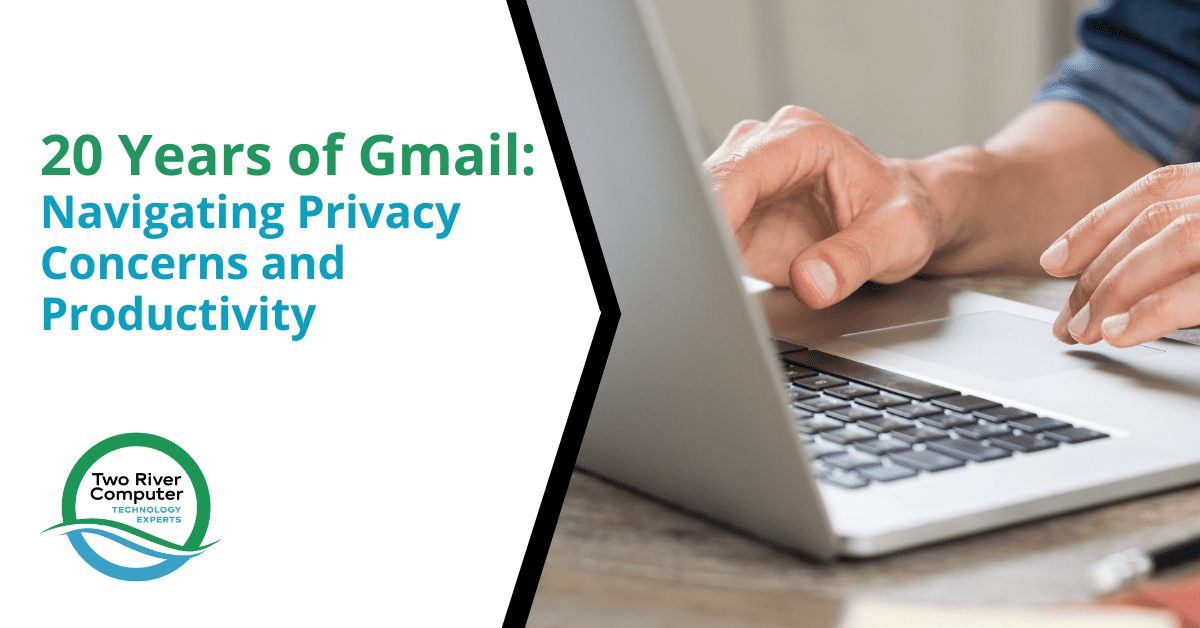
Since its inception two decades ago, Gmail has revolutionized the way we communicate online. Offering generous storage, intuitive interface, and robust features, it quickly became a staple in both personal and professional settings. However, despite its widespread adoption and acclaim, Gmail isn’t without its controversies.
One of the primary concerns revolves around its affiliation with Google, a company often scrutinized for its data collection practices. In this article, we delve into the evolution of Gmail over the past 20 years, explore its strengths and weaknesses, and discuss the implications of its association with Google.
The Rise of Gmail: A Game-Changer in Email
In April 2004, Google introduced Gmail, marking a significant milestone in the realm of email services. With its groundbreaking features such as threaded conversations, powerful search functionality, and ample storage space, Gmail quickly gained traction among users seeking an efficient and reliable email solution. The invitation-only beta launch strategy further fueled curiosity and anticipation, turning Gmail into a coveted commodity.
Gmail’s user-friendly interface and seamless integration with other Google services, such as Google Drive and Google Calendar, contributed to its widespread adoption. The introduction of labels, filters, and tabs enhanced organization and productivity, making it easier for users to manage their emails effectively. Moreover, Gmail’s commitment to innovation, evidenced by regular updates and feature enhancements, ensured its relevance in an ever-evolving digital landscape.
The Evolution of Privacy Concerns
Despite its popularity, Gmail has been a subject of privacy concerns since its inception. As a product of Google, a company known for its data-driven business model, Gmail raised apprehensions about user privacy and data security. Google’s targeted advertising practices, which rely on analyzing user data to deliver personalized ads, fueled speculation about the extent of data collection and surveillance associated with Gmail.
Over the years, Google has taken steps to address privacy concerns surrounding Gmail. Enhanced encryption protocols, two-factor authentication, and privacy settings empower users to safeguard their accounts and information. Additionally, Google has implemented measures to increase transparency regarding data usage and provide users with more control over their privacy settings. Despite these efforts, skepticism persists, reflecting broader anxieties about online privacy and data protection.
The Pros and Cons of Gmail
Advantages of Gmail
Gmail offers several advantages that contribute to its appeal and utility for users:
- Generous Storage: With 15 GB of free storage space, Gmail enables users to store a vast amount of emails, attachments, and files without worrying about reaching storage limits.
- Integration with Google Services: Seamless integration with other Google services such as Google Drive, Google Calendar, and Google Meet enhances productivity and collaboration.
- Powerful Search Functionality: Gmail’s robust search capabilities enable users to quickly locate specific emails or information within their inbox, saving time and improving efficiency.
- Cross-Platform Compatibility: Gmail is accessible across various devices and platforms, including web browsers, mobile devices, and email clients, ensuring seamless access to emails anytime, anywhere.
Limitations of Gmail
Despite its many advantages, Gmail has certain limitations and drawbacks:
- Privacy Concerns: The association with Google raises concerns about data privacy and surveillance, leading some users to question the extent to which their personal information is being utilized for targeted advertising and other purposes.
- Dependency on Internet Connection: Gmail relies on an internet connection for access, which may pose challenges for users in areas with limited or unreliable internet connectivity.
- Learning Curve: While Gmail’s interface is generally intuitive, some users may find it overwhelming, especially those transitioning from other email platforms. Navigating features such as labels, filters, and settings may require a learning curve for novice users.
- Customization Limitations: While Gmail offers a range of customization options, some users may find the platform’s customization capabilities limited compared to alternative email clients.
Navigating the Future of Gmail
As Gmail celebrates its 20th anniversary, it continues to evolve in response to changing user needs and technological advancements. Features such as Smart Compose, which uses artificial intelligence to suggest email responses, and Confidential Mode, which adds an extra layer of security to sensitive emails, reflect Google’s commitment to innovation and user experience.
Moving forward, addressing privacy concerns will remain a priority for Gmail and Google as a whole. Enhancing transparency, providing users with more control over their data, and implementing robust security measures are essential steps in building trust and confidence among users. Additionally, fostering open dialogue and soliciting feedback from users can help Gmail adapt to evolving privacy expectations and maintain its position as a leading email service provider.
Embracing Innovation While Safeguarding Privacy
Gmail has undeniably transformed the way we communicate and collaborate online over the past two decades. Its user-friendly interface, robust features, and seamless integration with other Google services have earned it a prominent place in the digital landscape. However, concerns regarding privacy and data security persist, reflecting broader societal anxieties about online privacy and surveillance.
As we navigate the future of Gmail, it is crucial to strike a balance between innovation and privacy protection. By prioritizing user privacy, transparency, and security, Gmail can continue to thrive as a trusted email service provider. As users, we must remain vigilant about our privacy rights and advocate for measures that ensure our data is handled responsibly.
For more information about our approach to privacy and security, contact Two River Computer today. We are committed to providing solutions that prioritize your privacy and security.


